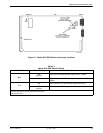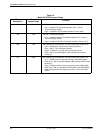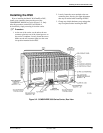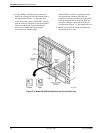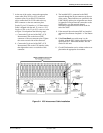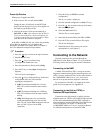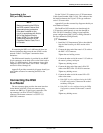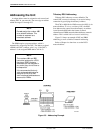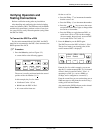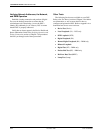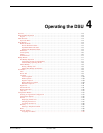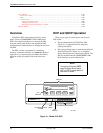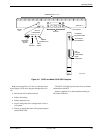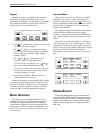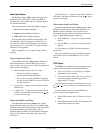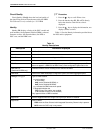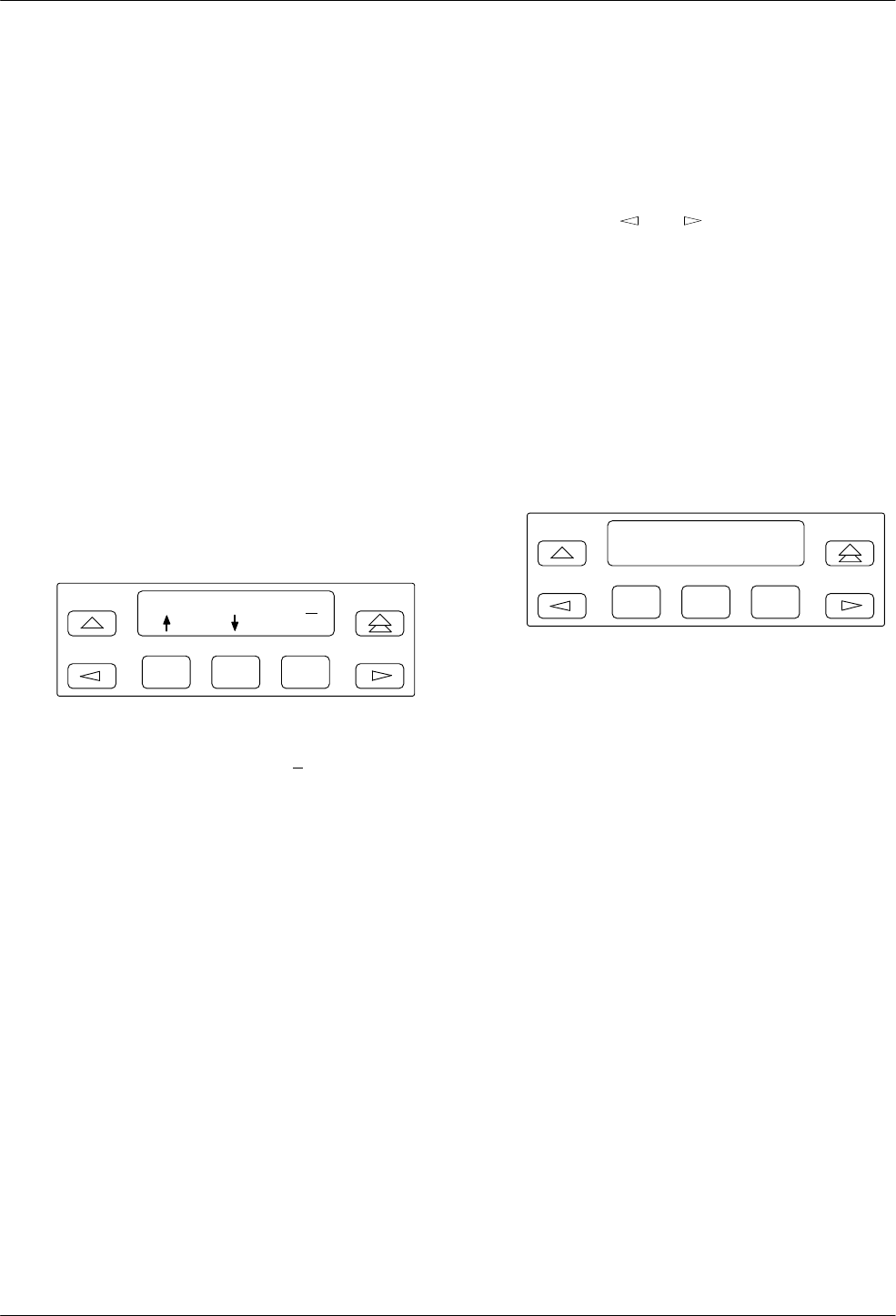
Installing the Model 3616 DualFlow DSU
3-113615-A2-GB20-20 December 1996
Verifying Operation and
Testing Connections
Perform verification testing after any installation.
After installing and configuring the circuit (including
control and tributary DSUs, the DDS network, the DBMs
and their dial connections), perform a series of tests from
the contr
ol DSU to verify network operation (using either
the SDCP or NMS).
To Connect the SDCP to a DSU
For the carrier-mounted Model 3616 DSU, the SDCP
must first be reconnected to the DSU. Once connected, the
SDCP operates like a DCP
.
. Procedure
1.
Press the
Select key (refer to Figure 3-2).
A screen similar to the following appears.
F1 F2
F3
Carr:Slot: 1:01 A
1:02A
The cursor is usually positioned under the second
position of the slot number (1:01 ).
In this example, the
first line
shows
• 1 indicates Carrier 1 (Carr)
• 01 indicates the DSU in Slot 1
• A is reserved for future use
On the
second line
•
Press the
F1 key (↑) to increment the number
that the cursor is on.
•
Press the
F2 key (↓) to decrement the number.
•
Press the
and
keys to move the cursor
one position to the left or right, to change either
the carrier or slot number.
•
Press the
F3
key to toggle between DSUs, to
switch from 1:01A to 1:02A in this example.
(In our example, the previously accessed DSU
was located in Slot 2 of Carrier 1.)
2.
Press the
Select
key on the SDCP again.
The SDCP accesses the DSU in Carrier 1, Slot 1.
The top-level menu (your starting point) of the
carrier
-mounted DSU is displayed.
F1
1:01 A DSU 9.6 C
Local Remot
F2
F3
From the
first line
of this example, you can see
that this is a carrier-mounted DSU (1:01A instead
of Port1) that is located in Carrier 1, Slot 1, is
operating as a DSU (i.e., not as a DBM), at
9.6 kbps, and is configured as a control (C).
From the second line you can see that there are no
NMS messages (no
Msg branch over the F3 key)
waiting to be read and cleared.
Also note that the SDCP indicator on the selected
DSU’
s faceplate,
Front Panel
, is lit.



